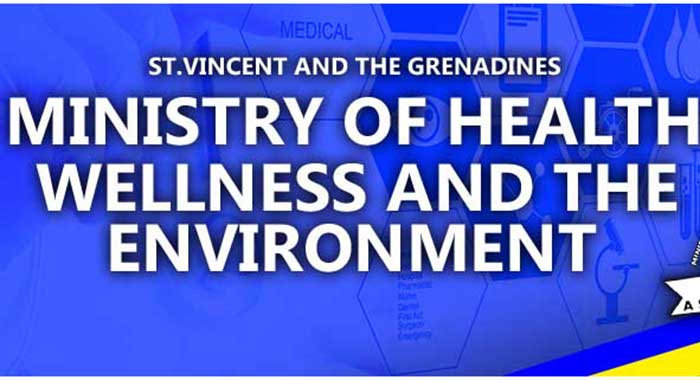By Health Analyst
The health system in St. Vincent and the Grenadines (SVG), over the past decade or so, has deteriorated rapidly.
SVG once prided itself in the region as having excellent primary health care and good results with respect to core health indicators such as high immunisation coverage, effective disease preparedness and response and the availability of health information to guide policy and programmes.
Today, the country is lagging far behind most other jurisdictions in the region and the response of the health system is one that is best described as reactive, spotty, poorly-coordinated, and lacking desirable outcomes to promote health and prevent diseases, which is the core mission of a ministry of health.
The Ministry of Health, Wellness and the Environment is in chaos. It lacks bold political leadership and strong technical direction. Surprisingly, the ministry does not have an updated strategic plan to guide its work. The health response is ad-hoc, without any focus on key desirable outcomes that they are working on to achieve in any given period.
This is quite evident in the COVID-19 response and the current dengue outbreak, where we see that the ministry is coming up with plans as these health crises unfold. The work of the ministry is to respond to health-related situations. Therefore, there should always be response plans ready when there is an outbreak and these plans should rapidly be activated and put into action without delay. What we are seeing is that the ministry is often caught off guard and then must plan at the same time that it is responding. This does not only set back the response plan, it severely retards the quality and the effectiveness of responding, leading to loss of lives — six so far in the case of the dengue outbreak.
There are lots of rumbling at the top. There is the continuous fighting for positions and posts. When these posts are filled, they are hardly ever matched with qualified and experienced persons, but by those who are politically aligned or are loyal to the political powers. This often results in a set of decision makers who are clueless, inexperienced and cannot effect any change in the health sector. The current Minister of Health was once hailed as a “breath of fresh air” for the ministry. Although he had no qualification or experience in health, there were optimism that he would provide strong leadership and direction with the support of his top technical staff. Unfortunately, this has proven to be wrong. The minister has gone off on his own and is doing his own thing, frustrating top technical officers. Not only has he gone rogue, he is also disconnected and disengaged.
The health sector is bleeding from a lack of human resource capacity to support its work. In most departments, the staff compliment is insufficient to support the effective functioning of the work. Although there are very qualified staff, staff morale is low, and a toxic work culture exists, again highlighting the disconnect and tension between management and line staff. There is an urgent need for a human resource management strategy to properly manage the staff numbers, quality and output.
Critical programmes for the ministry are falling apart. For example, non-communicable diseases are the leading cause of mortality and morbidity, but the ministry lacks an NCD unit and has no plan of action to respond to the rising burden of chronic diseases. Similarly, we have seen an increase in communicable diseases such as dengue, the emergence of Chikungunya, zika and now COVID-19 and the ministry has no preparedness and response plans. Other critical programmes such as mental health, HIV and vector control are falling apart and are not delivering.
These are just a few of the malignancies that are affecting the health sector. The ministry must, therefore, initiate treatment and try to resuscitate the sector before these malignancies spread further, causing the system to collapse. The ministry must focus on strengthening leadership and governance of the sector. A complete review of the structure and functions of the ministry should take place immediately to diagnose the inefficiencies and treatment administered.
The government must invest more in health and ensure sustainable health financing mechanism. Programmes such as vector control are severely underfunded. Information systems for health are lacking and this must be corrected to provide evidence to guide decision-making. Otherwise we would get decisions based on people’s feelings and not on the situation on the ground.
The health workforce development requires urgent attention. Skills and experience must be matched to the tasks. There is a need for improved health service delivery throughout the country.
The opinions presented in this content belong to the author and may not necessarily reflect the perspectives or editorial stance of iWitness News. Opinion pieces can be submitted to [email protected].







Hmmm! Someone who “knows better,” will come right here and say you’re lying and that things are in place and you don’t know what you’re talking about. Look out!